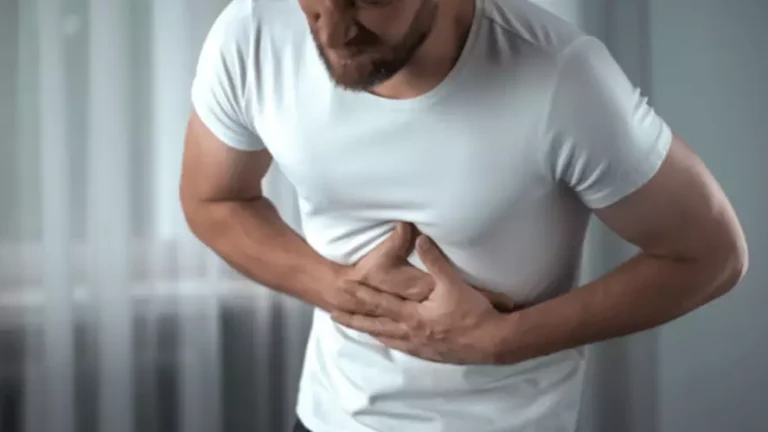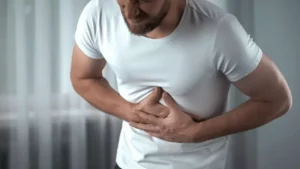
The Centers for Disease Control and Prevention (CDC) reports that nearly two-thirds of American adults drink alcohol. A concerning portion—about 1 in 4 drinkers—binge drink at least once per year, consuming five or more drinks within a short time frame. Binge drinking can lead to acute kidney injury (AKI), a sudden drop in kidney function that can sometimes lead to lasting damage. Occasional drinking, one or two drinks now and then, usually doesn’t harm kidney function. Excessive drinking, more than four drinks a day, can seriously affect your health, especially if you have kidney disease.

Alcoholism
Ethyl glucuronide (68) is a non-volatile, water-soluble direct metabolite of ethanol. It can be detected in body fluids, tissue, sweat and hair for an extended time after alcohol has been eliminated from the body. These led to the suggestion that ethyl glucuronide may be a marker for alcohol consumption or for the detection of relapse of alcoholics. Ethyl glucuronide is not detectable in abstinent patients, non-drinkers or teetotalers and is thus specific for alcohol consumption. Besides CNS adaptation, alcoholics (in the absence of liver disease) often display an increased rate of blood ethanol clearance. Suggested mechanisms for this metabolic tolerance are shown in LIST 5 (55,61–63).

Zonal Metabolism of Alcohol in the Hepatic Acinus (65–
Dialysis is a procedure that involves filtering waste products and excess fluid from the blood. The treatment for alcohol-induced kidney problems depends largely on the type of kidney disease a person has sustained. According to the United Kingdom’s National Health Service (NHS), a person should consult a doctor if they experience symptoms consistent with kidney disease.

Factors Affecting Alcohol Absorption
- Acetaldehyde can also be oxidized by aldehyde oxidase, xanthine oxidase, and by CYP2E1, but these are insignificant pathways.
- This will decrease first pass metabolism by the stomach, and hence, increase blood alcohol concentrations.
- According to a 2022 review, symptoms do not usually manifest until stage 4 or 5 of the disease.
- However, Buja et al. suggested an inverse linear relationship between moderate alcohol consumption and the risk of age-related loss of renal function 90.
According to the American Kidney Fund (AKF), there are five stages of chronic kidney disease (CKD), with stage 1 representing the earliest and mildest stage and stage 5 representing the most advanced and severe. Regular and excessive alcohol use can also cause high blood pressure (hypertension) for a combination of reasons, such as disrupting hormones and affecting the muscles in blood vessels. Nonetheless, the reviewers note that alcohol metabolism produces free radicals and other harmful by-products that are known to damage the body’s organs and tissues. AKF works on behalf of 1 in 7 Americans living with kidney disease, and the millions more at risk, to support people wherever they are in their fight against kidney disease — from prevention through post-transplant living. As the evening progresses, you spend most of your time in the toilet. So it might be easy to think that alcohol is bad for your kidneys because you’re overworking them.
- So while enjoying a cold beer now and then might be permissible, always consider the caloric implications as part of managing your overall health with kidney disease.
- Alcohol can be a vasodilator, which means that it can cause the blood vessels to widen and can increase the rate of blood flow and decrease blood pressure.
- As the National Institute of Diabetes and Digestive and Kidney Diseases (NIDDKD) explains, the kidneys contain tiny, finger-like structures called nephrons.
- Drinking alcohol alongside some medications can cause problems with other organs such as your liver.
Kinetics of Alcohol Elimination In-vivo (12–
In contrast, Menon et al. could not find any adverse or beneficial effects of alcohol consumption on kidney function in the elderly 88. A Japanese cohort study also found that CKD is an independent risk factor for higher rates of stroke in men and women. Furthermore, moderate alcohol consumption appears to be harmful in patients with CKD because it increases the incidence of cerebral hemorrhages 14,89. The best approach to protecting kidney health from alcohol-related harm is prevention. Essentially, limiting alcohol consumption is key to reducing the risk of kidney damage.
Red wine and kidney disease: What you should know
- Since ethanol and certain drugs compete for metabolism by CYP2E1, active drinkers will often display an enhanced sensitivity to certain drugs as alcohol will inhibit the metabolism of the drug and thereby prolong its half-life.
- If the body does not pass the stone, a person can develop a severe infection or blockage.
- Moreover, other bioactivators in red wine, excluding resveratrol, and those in white wine, also have the function of ROS scavenging and renal protection 7,84,113.
Men and women generally have similar alcohol elimination rates when results are expressed as g per hr or g per liter liver volume. Because of first pass metabolism by the stomach, it is possible that a given oral dose of alcohol may produce a higher blood ethanol concentration in females than males (11,15). Animals with small body weight metabolize alcohol at faster rates than larger animals e.g. the rate of alcohol elimination in mice is 5 times greater than the rate in humans.

Kidney issues unrelated to alcohol
Physically, the kidneys have several enzymes with antioxidant capacities, including superoxide dismutase (SOD), catalase (CAT), and glutathione peroxidase, which can balance various oxidative processes. Several studies have demonstrated that alcohol consumption increases ROS generation, which contributes to lipid peroxidation and damages antioxidant capacity 34,35. At first, you might not have any symptoms of kidney damage from regular alcohol consumption.
Take a free kidney health class
Abstinence is one of the characteristics of human drinking habits; many doctors will encourage patients to stop drinking, which may be good for their health 121. As for the kidney damage caused by alcohol, some studies discovered that the patients’ renal function recovered after abstinence 1. However, others also found that does drinking beer hurt your kidneys abstinence cannot completely repair the kidney injury 26. Unfortunately, existing clinical studies have not analyzed why some patients with CKD give up drinking and the influence of giving up drinking on the prognosis of these patients.

They emphasize that alcohol is linked to health risks regardless of the amount consumed. The previous belief that moderate red wine is beneficial has been debunked. The kidneys are vital in maintaining the body’s internal balance and overall health. These bean-shaped organs filter waste products, excess fluids, and toxins from the blood to form urine. To reduce harm to a person’s health, it is best to reduce or avoid consuming alcoholic drinks where possible. Without adequate blood flow, the kidneys struggle to remove waste products and excess fluid from the blood.

Recent Comments